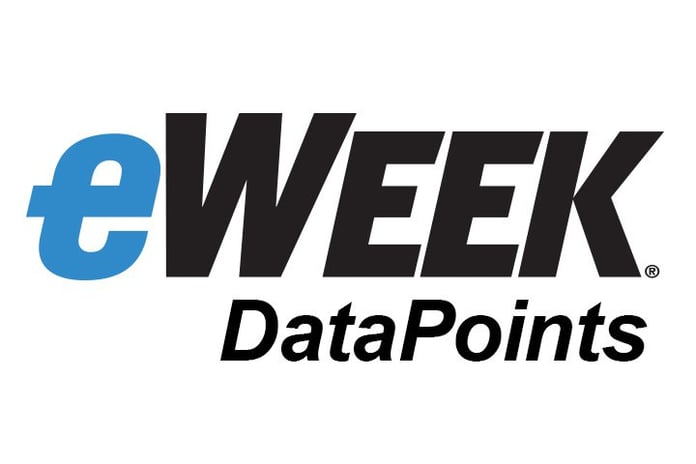In software-dependent businesses, when processes break, productivity slows to a grinding halt, and it doesn’t even take a complete breakdown to cause disarray in the workflow. From advanced automation platforms to traditional sales CRMs, even small operational oversights can compromise trust in a system—such as when there’s no possible workaround for minor exceptions to a workflow process, or even worse, when an automation system records information unreliably or incorrectly.
That’s a major reason why some industry experts contend that the work of operations professionals, who constantly identify and remedy these cracks in the operational armor, are vastly underappreciated. Operations are a cornerstone of the enterprise, responsible for creating the systems and processes that increase efficiency, employee happiness, and innovation at scale.
According to Tonkean CEO Sagi Eliyahu, operations will play an even more important role in defining the future of work. He believes that in the next 10 years, operations will emerge as one of the most valued and resourced functions in successful enterprises.
Eliyahu is not alone. The recent introduction from IBM of Watson AIOps, which IBM intends to use to improve operational resiliency and “automate how enterprises detect, diagnose and respond to IT problems,” signals that investment in and appreciation of operations as a business function is trending upward. To Eliyahu, this is a good sign; it is said that “no one gets fired for buying IBM,” and he suggests that business leaders who want to survive and thrive in the future would be wise to follow IBM’s lead by investing in operations. “Operations is the primary function in most businesses that’s able to put the different workflows and needs of individual employees and teams first,” Eliyahu says.
Preparing workflows to be adaptive and resilient to change—and investing in the operations function to this end—is essential in a world where we’re all of a sudden working from all corners of the globe. In this eWEEK Data Points article, Eliyahu offers five reasons why investing in automating and innovating operations is a strategically sound investment to aid the future of work.
Data Point No. 1: Exceptions to the rule
No matter the department, workflows have to be airtight in order to run smoothly. But most workflows in time reveal exceptions—edge cases that break the process and leave people scrambling for a workaround. Revenue teams whose processes break down might let quality leads fall through the cracks. Customer success teams might overlook clients having a less-than-exceptional experience. Finance teams might not be able to resolve budget discrepancies quickly, and legal teams might find that they’re spending too much time manually collecting documents.
Worst of all, when processes break down, it may become unclear for the folks involved who to reach out to to resolve the problem. Operations teams are the ones who ensure that these kinds of things don’t happen—and that any and all edge cases are accounted for. As the market, environmental and social conditions atop of which we build companies become less predictable in the future, keeping processes and workflows adaptive will become paramount.
Data Point No. 2: Every flavor of ops
IBM’s investment on IT operations, using artificial intelligence to augment IT systems, is important, but it’s only one piece of a much larger puzzle. Ops power every disparate corner of every business. Beyond IT ops, there are legal ops, finance ops, sales and revenue ops, marketing ops and many more ops functions that are increasing in size and value. Each individual ops department, with the right investments, can supercharge their teams. Companies who thrive will be the ones who make the right investments in individual ops teams that can supercharge every department.
Data Point No. 3: Resilience in the face of change
Even under the steadiest of circumstances, businesses encounter change. Technology breaks. Markets fluctuate. People evolve. Your company’s operational infrastructure must prove capable of accommodating such change, no matter what the world throws at you. Consider the challenge organizations have faced transitioning to a 100% distributed employee structure this year. The absence of in-office collaboration changed day-to-day workflows and necessitated the creation of new, virtual processes. Operations teams resided (and continue to reside) at the center of this work—of designing new workflows and ensuring, among other things, they accommodate employee preferences and needs.
Data Point No. 4: Last mile problems
Every company has an undiagnosed “last mile” problem. There are plenty of tools out there to help employees become more efficient and reduce incessant data entry. But these tools often aren’t set up for unique organizational needs; they accomplish 80% of a workflow that’s similar across every company and leave the last 20% up to each individual organization to navigate. This ends up creating more manual work for everyone and manifests in wasted time and lost revenue. Operations teams, if properly equipped with the right adaptive platforms, can create automation-augmented workflows that actually do run end-to-end. As a result, they can liberate employees from the work they do to overcome bad processes and recover money and time that’s currently lost from bridging technological gaps.
Data Point No. 5: Connections to people problems
There’s a perception that automation, AI, ML and the like will fully replace jobs and put people out of work. In most professions that’s far from the case; automation tech stands to augment people by performing the most mundane, repeatable parts of some jobs, empowering employees to spend time on more high-leverage work.
Maintaining a “human in the loop” will be the best way to use automation and AI platforms to not just to accomplish one or two specific business outcomes, but to optimize employees and workflows holistically. And who is the department best equipped to manage those workflows? Operations.
If you have a suggestion for an eWEEK Data Points article, email cpreimesberger@eweek.com.
